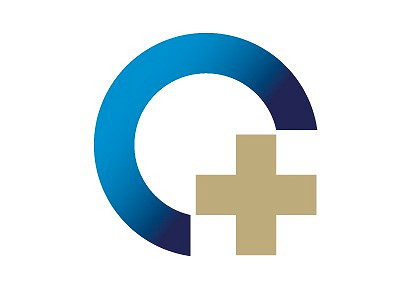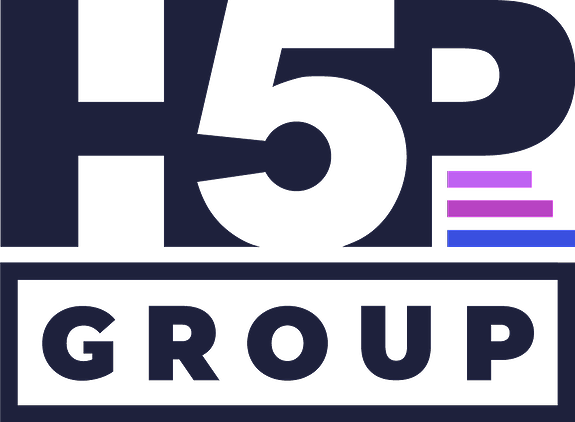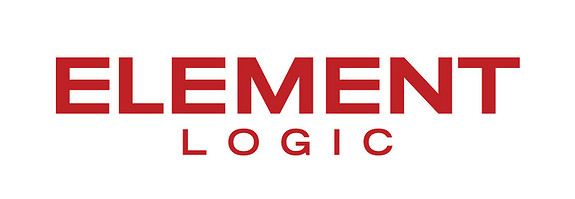
MSCA Postdoctoral Fellowship 2025 – Free speech controversies and the arts
- Arbeidsgiver
- OsloMet - storbyuniversitetet
- Frist
- 31.01.2025
Beskrivelse
Oslo Metropolitan University is Norway's third largest university with almost 22,000 students and over 2,500 employees. We have campuses in central Oslo and at Romerike. OsloMet educates students and conducts research that contributes to the sustainability of the Norwegian welfare state and the metropolitan region.
Faculty of Social Sciences offers study programmes within archivistics, library and information science, journalism and media studies, social work, social policy and child welfare, public management and business.
The faculty has about 4200 students and nearly 280 members of staff.
The Department has around 600 students and 40 employees and is located at the OsloMet Pilestredet Campus in Oslo. Multiple programs are offered through the department, including Bachelor’s, Master’s and Doctoral programs in Library and Information Science and a Bachelor’s program in Archivistics and Records Management.
Call for Expression of Interest for a joint application development under the EU Marie Skłodowska-Curie Action European Postdoctoral Fellowship
OsloMet invites interested researchers of any nationality, fulfilling the eligibility requirements for the fellowship, to express their interest in developing an application for a one-year or two-year project at OsloMet, funded by the Marie Skłodowska Curie European Postdoctoral Fellowship 2025 (Call: HORIZON-MSCA-2025-PF-01-01)
Oslo Metropolitan University - Externally funded research projectOsloMet - Oslo Metropolitan University is Norway’s third largest university, with nearly 23,000 students, and more than 2,500 employees from over 60 nationalities. OsloMet has a dynamic stimulating research-intensive academic environment and an attractive employment framework. OsloMet is a diverse and urban university with an international profile; its main campus is in the city center, providing a vibrant setting to study, conduct research, and work.
Applicants who successfully secure EU funding for their proposals must relocate to work in the Department of Archivistics, Library and Information Science, and the research group Information, Culture and Society.
Research group on Information, Culture and SocietyThe group studies institutions of culture, information and media from a social scientific standpoint. We study the social missions of libraries, archives, museums and other institutions of culture, information and media, and how these have changed throughout history. We study the library and archivist professions, and how social and technological change transforms the practice, role and relevance of the professions. We study the contemporary and historical policies related to libraries, archives and museums, as well as other parts of the culture- and media-sector, and how it has changed due to societal and technological development. We study how citizens make use of the offerings of culture-, information- and media organizations, and how the organizations work to promote and support inclusion, citizenship, democracy and the public sphere.
Area of research for the project proposalsSuccessful candidates will be supervised by Professor Håkon Larsen. He is an experienced researcher with expertise in cultural sociology, theories of democracy and the public sphere, the Nordic model, and empirical studies of public debates and organizational legitimation work in the culture sector. He is a professor at OsloMet, a faculty fellow at Yale’s Center for Cultural Sociology, and a member of several working groups on the sociology of art, social theory, and cultural sociology in international and European professional associations. He is head of the research group Information, Culture, and Society at the Department of Archivistics, Library and Information Science at OsloMet.
Professor Larsen is currently analyzing the social dynamics of free speech debates in the arts and ask how civil society actors establish moral justifications for inclusion and exclusion; how managers of arts organizations are responding to such claims; and how controversies over arts management, artistic freedom and inclusive practices are fought out in public. In most Western countries, contestations over free speech have intensified over recent years. Critical voices have been arguing that cultural phenomena such as wokeism and cancel culture are threatening liberal democracy as we know it, and social movements struggling for the inclusion of minorities across societal sectors have responded to these critiques by pointing to contemporary and historical discrimination against specific groups. Many of these debates concern identity, history, and freedom of speech, and many controversies have been over how specific groups are represented in art works and the practice of arts organizations.
The candidates are invited to address free speech controversies related to one or more art world in one or more European country. These can be studied via qualitative or quantitative methods, involving textual analysis and/or interviews/surveys.
The candidates may want to address questions such as:
- What characterizes debates over wokeism, cancel culture and minority inclusion as they relate to the arts in one or more European country?
- What characterizes the dynamics of debates on free speech in the professional journals related to one or several art worlds (e.g. literature, visual arts or performing arts) in one or more European country?
- How do arts managers respond to these debates?
- What characterizes the attitude of arts managers and/or the general public in one or more European countries regarding controversies over free speech and minority inclusion in the arts, wokeism and cancel culture?
With this call for Expression of Interest, we invite researchers to submit:
1. An application letter stating concisely why the proposed research project is solid, timely and innovative, why you are the best qualified person to carry it out, and also why our department is the perfect place for you to carry it out.
2. A CV (including publication list)
3. A one-page project description (excluding references), that will be the basis for candidates with whom we will collaborate for developing competitive MSCA-PF proposals.
Starting Date of the fellowshipEvaluation results for the MSCA-PF-2025 applications are communicated by the EU Commission in February 2026. Successful applicants can start the fellowship earliest in April 2026, given that they can move to Norway at that time, and no later than winter 2026.
Expected qualification of applicantsEligibility requirements:
- The applicant should have a PhD degree in a social science or humanistic discipline, such as sociology, anthropology, media studies, cultural studies, museology, or library and information science, by the end of June 2025.
- The applicant must have a maximum of eight years’ experience in research, from the date of the award of their PhD degree. Experience outside research and career breaks will not count towards the above maximum, nor will experience in research in third countries, for nationals or long-term residents of EU Member States or Horizon Europe Associated Countries who wish to reintegrate to Europe.
- The applicant must not have resided or carried out their main activity (work, studies, etc.) in Norway for more than 12 months in the 36 months immediately before the call deadline, 10 September 2025
- Must be able to relocate to Norway. Teleworking will not be permitted.
We are looking for applicants who have
- Knowledge of the arts, cultural policy and/or public debates in one or more European country.
- A good track record in research and publications
- Commitment to develop a competitive MSCA-PF grant application
- An open and cooperation-oriented nature, with strong abilities for independent academic work
- Excellent command / highly proficient spoken and written English
We are primarily looking for experienced researchers who wish to use this period as an opportunity to further develop their research, and to develop longer term research collaborations with OsloMet and other organizations conducting research in the field.
Assessment and selection of candidates
Evaluation will be based on the candidate’s qualifications and project idea.
Short-listed candidates will be invited for a virtual interview. Up to two select candidates will be invited to develop a full MSCA-PF application, under the supervision of Professor Håkon Larsen and with the support of the research support staff at OsloMet.
Candidates will be informed of the results of the internal pre-selection no later than 20.04.2025
Original documents about your qualification must be presented if you are invited for an interview. OsloMet performs document inspections in order to give you as a candidate a proper evaluation and to ensure a fair competition. All documents, including your proposal idea, will be handled in full confidentiality and in strict compliance with GDPR regulations.
Selected candidates must participate in the virtual masterclass on MSCA-PF, a two-day workshop organised by OsloMet on 28-29 April 2025 to provide applicants with detailed information and explanation of the application template to complete their proposal in compliance with the EU Commission requirements.
Employment at OsloMet
Successful applicants who obtain a MSCA-PF grant will be offered a position at OsloMet to be hired as researchers to implement their proposed research project.
We offer:
OsloMet assists in developing competitive MSCA Postdoctoral Fellowship proposals.
To applicants who are awarded the MSCA-PF grant, we offer:
- Flexible working conditions
- An inclusive and friendly work environment
- Unique academic network with the possibility for the right candidate(s) to pursue his/her academic goals under the auspices of Professor Håkon Larsen
- Norwegian language classes
- Onboarding assistance for relocation and other services
Remuneration:
- Type of employment: Temporary position
- Contract type: Full time
- Gross Annual Salary: Approx. EUR 70,000 (including obligatory income tax and employer's national insurance contributions)
- Starting day of employment: (expected): Flexible between April and December 2026
- Working hours: 37.5 hours/week
OsloMet has implemented the Charter for researchers and been granted the HR Excellence in Research (HRS4R) by the EU Commission and is part of the EU network for mobility of Researchers EURAXESS. OsloMet International Staff Services will assist you during your relocation to Norway and practical information about can be found at our website Work for Us and EURAXESS Norway.
Contact
Håkon Larsen, Professor, e-mail: haklar@oslomet.no
Hanna Karv, Head of research support, Faculty of Social Sciences, e-mail: hannakar@oslomet.no
OsloMet is a Charter & Code certified institution by the EU Commission holding the right to use the logo HR Excellence in Research (HRS4R). OsloMet is a member of the EURAXESS network supporting a positive work environment for researchers in motion.
OsloMet has signed The Declaration on Research Assessment (DORA). DORA recognizes the need to improve the ways in which the outputs of scholarly research are evaluated.
The engagement is to be made in accordance with the regulations in force concerning State Employees and Civil Servants, and the acts relating to Control of the Export of Strategic Goods, Services and Technology. Candidates who are seen to be in conflict with the criteria in the latter law will not be considered for the position.
Visit OsloMet at LinkedIn, Facebook, Instagram
- Sektor
- Offentlig
- Sted
- 0130 Oslo
- Stillingsfunksjon
- Forskning/Stipendiat/Postdoktor, Annet, Rådgivning
- FINN-kode
- 384291447
- Sist endret
- 09. des. 2024 04:51
Mer som dette





